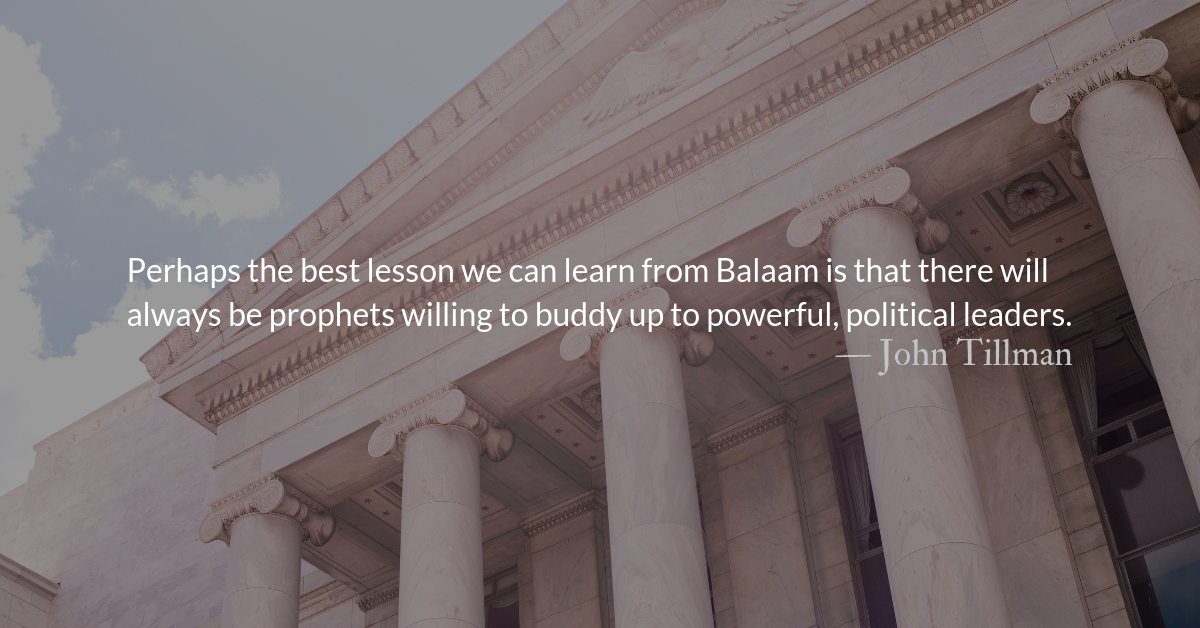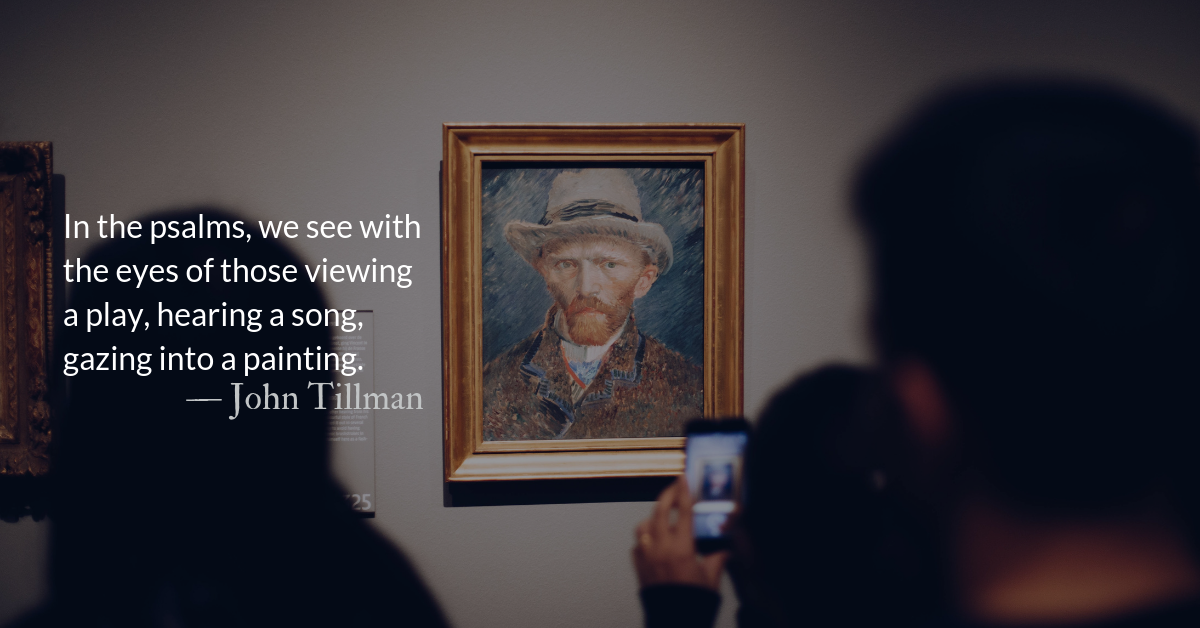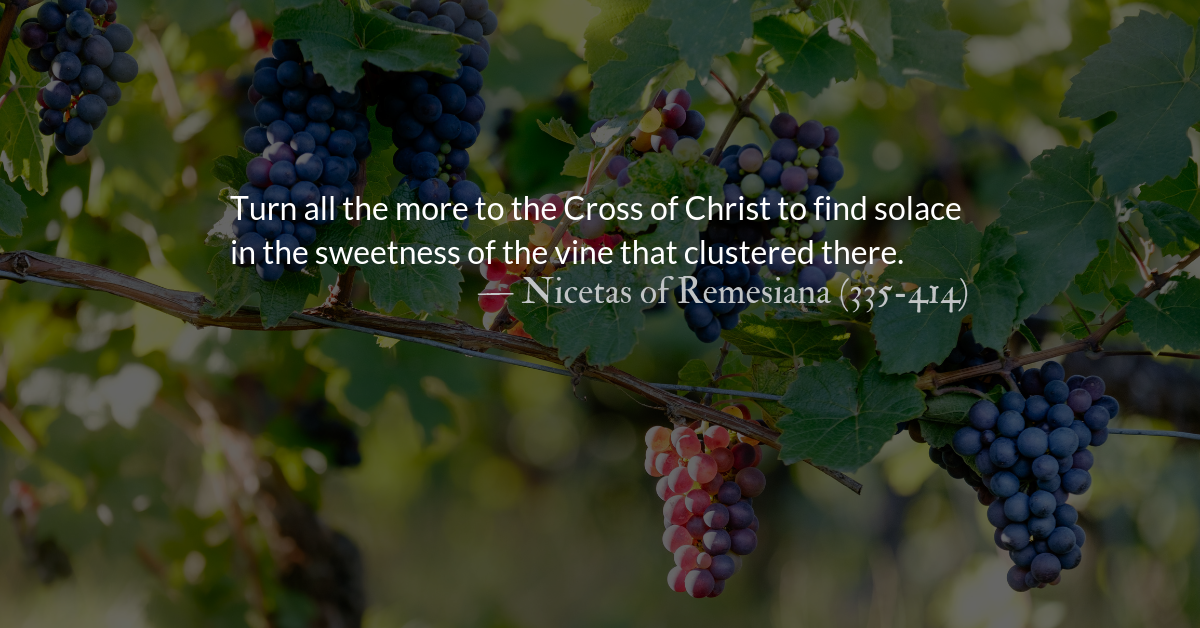Psalm 68.11
Your procession, God, has come into view,
the procession of my God and King into the sanctuary.
In front are the singers, after them the musicians;
with them are the young women playing the timbrels.
Reflection: Too Good Not to Be True
By John Tillman
I have personally always been drawn to the unusual stories of the Bible and I pray that many of you have benefited from an extended look at Balaam this week.
I worked with some writing partners on a children’s Bible teaching curriculum for many years. But before that curriculum, my partners had worked on another curriculum with a major Christian publisher. My partners wanted to tell the story of Balaam, but got pushback from the publishers, “Donkeys don’t talk and we don’t want to confuse the children.” My friends responded, “Does that mean we can’t teach Lazarus because dead men don’t come out of the grave?” The publisher eventually got their way and the Balaam lesson was cut.
It was a deep feeling of accomplishment when we eventually put a lesson on Balaam in the curriculum we wrote together later.
In his book, Telling the Truth, Frederick Buechner challenges preachers not to shy away from the fantastic and the miraculous, but to tell the truth in all its childishness.
“The preacher is apt to preach the gospel with the high magic taken out, the deep mystery reduced to a manageable size.
The wild and joyful promise of the gospel is reduced to promises more easily kept. The peace that passeth all understanding is reduced to peace that anybody can understand. The faith that can move mountains and raise the dead becomes faith that can help make life bearable until death ends it. Eternal life becomes a metaphor for the way the good a man does lives after him.
Let the preacher stretch our imagination and strain our credulity and make our jaws drop because the sad joke of it is that if he does not, then of all people he is almost the only one left who does not…
The joke of it is that often it is the preacher who as steward of the wildest mystery of them all is the one who hangs back, prudent, cautious, hopelessly mature and wise to the last when no less than Saint Paul tells him to be a fool for Christ’s sake, no less than Christ tells him to be a child for his own and the kingdom’s sake.
Let the preacher tell the truth…Let him preach this overwhelming of tragedy by comedy, of darkness by light, of the ordinary by the extraordinary, as the tale that is too good not to be true.”
Prayer: The Refrain for the Morning Lessons
My eyes are upon the faithful in the land, that they may dwell with me. — Psalm 101.6
– From The Divine Hours: Prayers for Springtime by Phyllis Tickle.
Today’s Readings
Numbers 25 (Listen – 2:20)
Psalm 68 (Listen – 4:26)
Thank You!
Thank you for reading and a huge thank you to those who donate to our ministry, keeping The Park Forum ad-free and enabling us to continue to produce fresh content. Every year our donors help us produce over 100,000 words of free devotionals. Follow this link to support our readers.
Read more about Balaams and Balaks
Balaam is not concerned with whether what the king wants is right or moral. He does not care about reconciling men or nations to God. Balaam’s prophecies are for sale.
Read more about The Prophet of Profit
Despite his close relationship with God and his ability to hear God speak Balaam seems to show the Lord no loyalty, reverence, or love.











